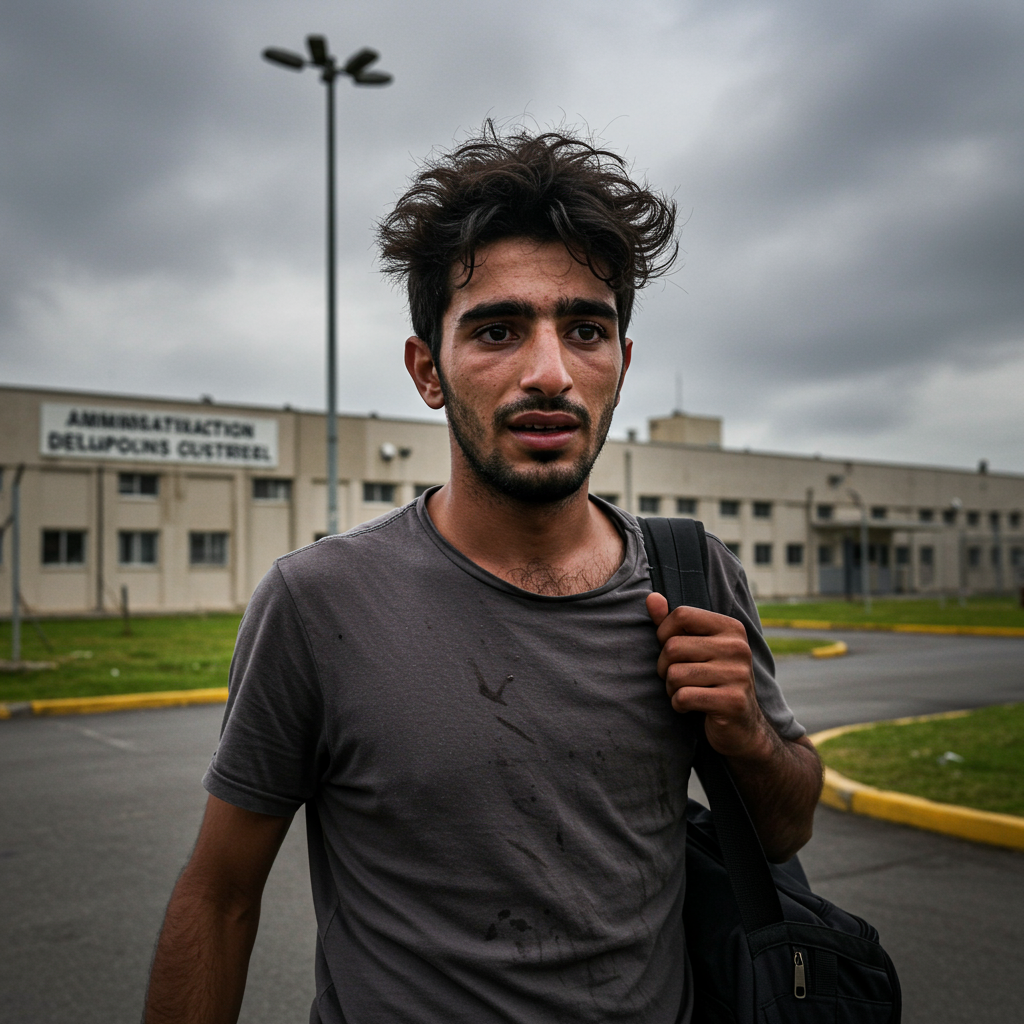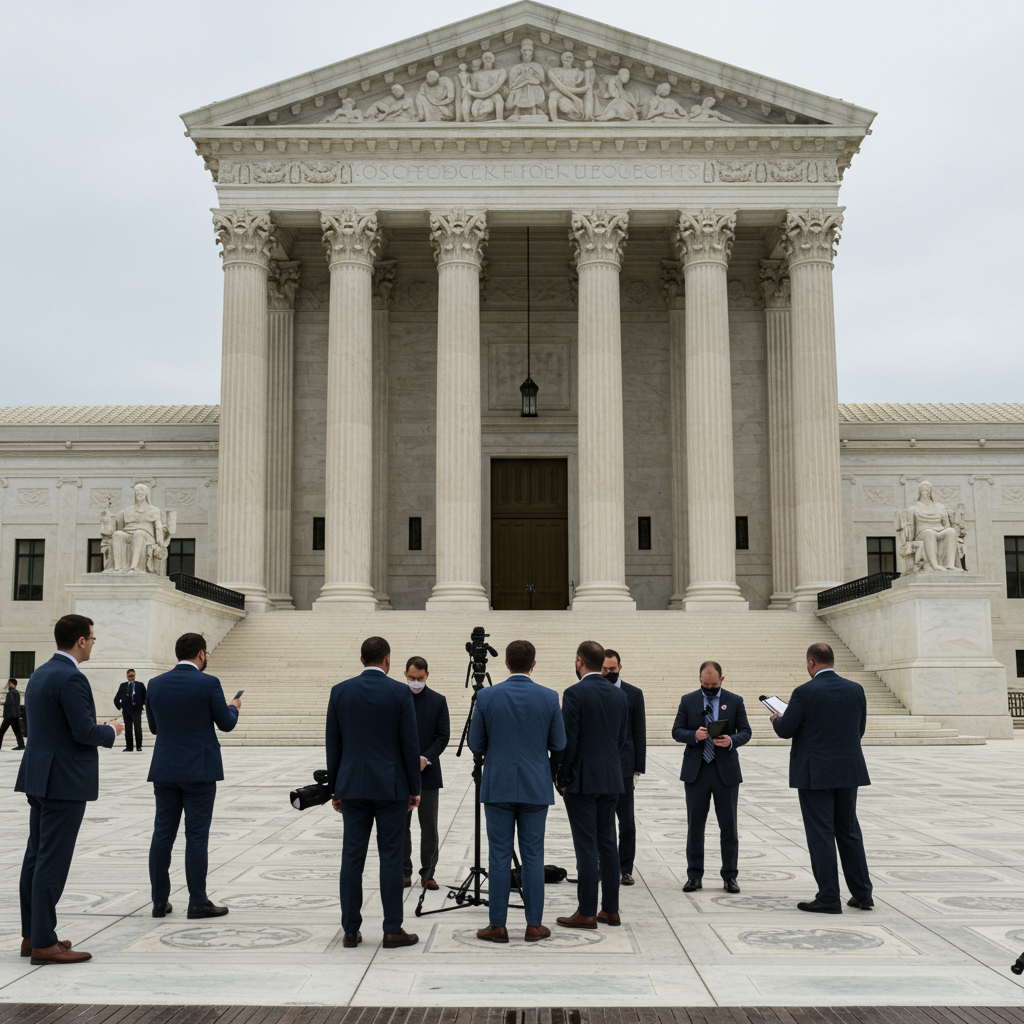Mahmoud Khalil Freed From ICE Detention After Months in Custody
Mahmoud Khalil, a prominent pro-Palestinian activist affiliated with Columbia University, has been released from a U.S. Immigration and Customs Enforcement (ICE) detention facility in Jena, Louisiana. The release occurred Friday evening, June 20, 2025, following more than three months in federal immigration custody.
Khalil, an Algerian citizen and U.S. permanent resident (green card holder) married to an American citizen, was initially arrested by plainclothes ICE agents in New York City in early March. His detention drew significant attention, marking him as the most high-profile student activist arrested by the Trump administration concerning pro-Palestinian advocacy and the last known noncitizen student from that group still held in federal custody.
Legal Battle Culminates in Federal Judge’s Order
Khalil’s release came hours after U.S. District Judge Michael Farbiarz, overseeing aspects of the case from the U.S. District Court for New Jersey, issued an order granting his release on bail. This federal ruling directly superseded a contradictory decision made simultaneously by an immigration judge in Jena, Louisiana, who had denied Khalil’s request for asylum, ordered his removal from the country, and ruled that he must remain detained.
During the hearing, Judge Farbiarz explicitly stated his finding that Khalil posed neither a flight risk nor a “danger to the community. Period, full stop.” The judge criticized the government’s attempt to continue detaining Khalil as “highly, highly unusual” and stated that the government had “clearly not met” the necessary standards for detention in this instance. He also suggested there was “at least something to the underlying claim that there is an effort to use the immigration charge here to punish Mr. Khalil,” adding that such action “would be unconstitutional.” Judge Farbiarz noted the lack of government evidence supporting claims that Khalil engaged in violence, property destruction, or incitement, despite having ample opportunity to present such proof.
This decision followed Judge Farbiarz’s previous ruling indicating that the specific law used initially to detain Khalil – a rarely used provision allowing deportation for those deemed to have an adverse effect on U.S. foreign policy, cited by Secretary of State Marco Rubio – is likely unconstitutional. While the judge had earlier allowed detention to continue based on separate allegations that Khalil misrepresented information on his green card application (which Khalil denies), he ultimately found this insufficient to warrant continued detention during the proceedings.
Government Criticizes Ruling, Khalil Looks to Reunite with Family
The Trump administration and the Department of Homeland Security (DHS) reacted sharply to Judge Farbiarz’s order. DHS issued a statement characterizing Judge Farbiarz as “one rogue district judge” and argued that the authority for detention or release rests solely with an immigration judge, not a federal district judge. The statement claimed the decision undermined national security and public confidence in the courts, stating it denied the result of the 2024 election and harmed the constitutional system. The White House also vowed to appeal the decision, arguing the New Jersey judge lacked jurisdiction over a detainee in Louisiana.
Emerging from the detention facility, Khalil expressed profound relief and eager anticipation to reunite with his wife, Noor Abdallah, and his infant son, Deen, who was born in April while he was in custody. Khalil was previously denied temporary release to attend the birth but was later allowed a brief visit.
“The first thing I’ll do when I arrive home is hug my wife and my son,” Khalil told reporters, describing his wife’s experience as “one of the most terrifying times of my life.” He also voiced concern for the “hundreds of men who are left behind,” stating they “shouldn’t be there in the first place.”
Khalil criticized the Trump administration, stating, “Trump and his administration, they chose the wrong person for this,” but stressed there is “no right person who should be detained for actually protesting a genocide.” He announced plans for a press conference in New York on Saturday to share further details.
Conditions of Release and Ongoing Legal Fight
While released from physical custody, Khalil’s freedom comes with conditions set by U.S. Magistrate Judge Michael Hammer, as outlined in the court order. He was required to surrender his Algerian passport to ICE officials at the Jena facility. His domestic travel is restricted primarily to where he and his in-laws live (New York), as well as locations necessary for attorney meetings, court appearances, and legislative meetings in specific states, including Louisiana, Michigan, New Jersey, and Washington, D.C. He is prohibited from international travel.
During the hearing to set bail conditions, a Justice Department attorney argued against returning Khalil’s green card due to the immigration judge’s simultaneous removal order. However, Khalil’s attorneys successfully argued that retaining the green card was necessary for his ability to appeal the immigration judge’s ruling. Judge Hammer agreed, ordering that the green card be returned to him for domestic travel purposes. The order also stipulated there would be no electronic monitoring.
Khalil and his legal team, including attorneys like Alina Das and Ramzi Kassem, maintain that his detention was retaliatory punishment for his speech and activism, which they argue are protected under the First Amendment. His attorney, Alina Das, stated, “The government’s latest actions confirm what we’ve alleged… that retaliatory detention is the government’s goal.”
Although released from federal detention, Khalil’s separate immigration case, including the government’s allegations regarding his green card application, remains ongoing and will proceed. Amnesty International USA welcomed the release as “overdue,” urging the administration to comply with the court order. Khalil’s legal team is preparing to fight the deportation case as it moves forward.



